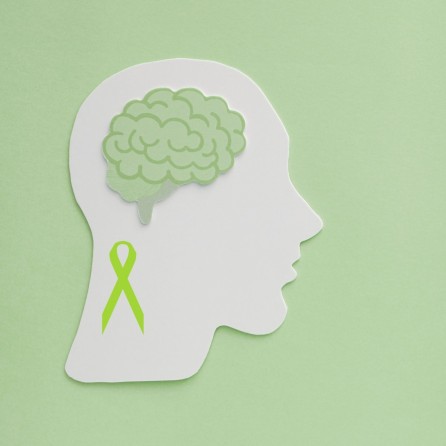
Our wonderful Community Engagement Team completed Mental Health First Aid training this month, working on important skills to be able to provide support to our Overcoming MS community and team when we need it most. They share how they feel about the training and their valuable roles as Mental Health First Aiders.
At Overcoming MS we work with a large diverse community of people living with MS. The NHS states that two-thirds of people with a long-term physical health condition also have a co-existing mental health problem, most commonly anxiety and depression. These can range from mild to severe. In an engagement survey carried out by Overcoming MS in 2021, 28% of respondents reported experiencing depression. Therefore, for our Community Engagement team to be able to offer the best support to our community, we’ve gained skills to recognise issues when they arise, the confidence to have honest conversations, and the knowledge to know where to signpost people to.
I joined the Mental Health First Aid training with a small amount of apprehension, knowing the topics had the potential to be tough. We covered a range of issues from anxiety and depression to addictions, self-harm, and suicide. We read case studies, discussed the presenting issues, and talked through what our approaches would be. I learned several grounding techniques for those struggling with anxiety and felt my confidence grow in how to support someone experiencing a serious mental health crisis.
As Mental Health First Aiders our job is primarily to assess, give information, and signpost where needed. However, our use of language and our ability to remain gentle yet direct is key, especially when asking difficult but essential questions. Sometimes it is as simple as saying “What can we do to help?”. I am proud that the Community Engagement team can now take this knowledge forward and build a framework of support for anyone who may need it.
Liz Waters, Community Engagement Programme Manager
Before joining the Mental Health First Aid training, I felt like I had a good understanding of mental health conditions and how best to support someone in need. However, what I found was that I only understood about 20% of what a mental health condition is. Through analysing different case studies surrounding anxiety, depression, and psychosis and discussing different approaches, this course has taught me what factors can really affect a person’s well-being, including my own.
It has given me the skills to spot triggers and signs of mental health issues, as well as the confidence to step in, reassure and support a vulnerable person. The Community Engagement team works daily with our Ambassador and Circle member community and this type of training has made us much more perceptive of other people’s feelings, body language, and words, as well as more self-aware.
I’m really looking forward to putting our knowledge into practice by creating a Mental Health Support Framework for all our Overcoming MS community and others who may need it.
Jake Connor, Community Engagement Administrator
If you’re struggling with your mental health, please reach out to us at [email protected] and we will help to connect you with the right support.